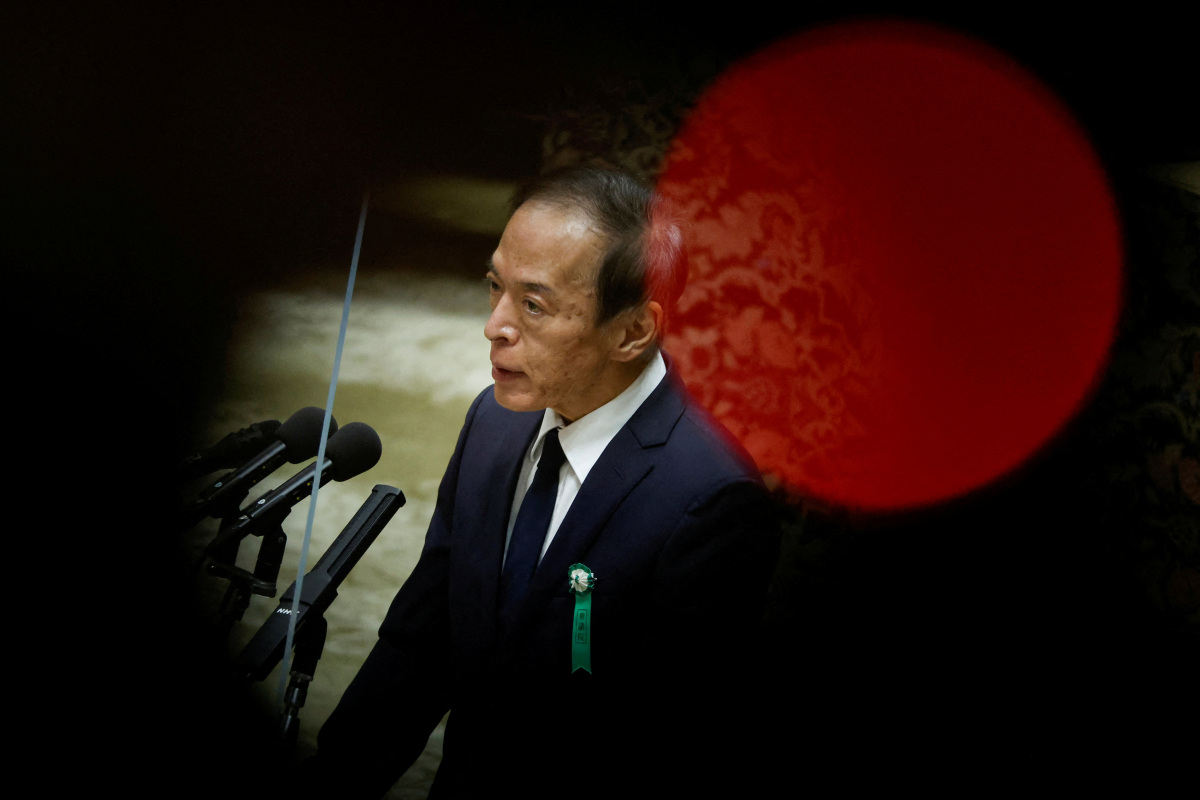Reuters
A look at the day ahead in Asian markets from Jamie McGeever.
Inflation figures from Singapore top the Asian economic calendar on Monday, kicking off a week in which eyes of the Asia Pacific region – and beyond – will be focused on the Bank of Japan’s first policy meeting under guidance of new governor Kazuo Ueda.
The BOJ’s decision, and Ueda’s press conference on Friday, will round off a week in which attention in Asia also turns to Japanese retail sales, unemployment and Tokyo consumer inflation reports, South Korean GDP and Australian inflation.
This comes as month-end approaches and investors look ahead to the U.S. central bank’s May 2-3 policy meeting. Fed officials are in blackout period, so expectations for the decision will be molded by U.S. data, corporate earnings, signals from the banking sector, and the ebb and flow of debt ceiling concerns.
The advance estimate of first-quarter U.S. GDP growth is out this week, and big tech earnings from Alphabet, Microsoft and Amazon are due. Tesla shares fell 13% last week after an earnings miss, the biggest fall in almost a year.
Back in Asia, the BOJ spotlight falls on Kazuo Ueda after a decade of uber-dove Haruhiko Kuroda. It is unlikely that Ueda, on his debut, will bin Kuroda’s super-loose yield curve control(YCC) policy so soon, but that is exactly what Marcel Thieliant at Capital Economics thinks.
Thieliant is probably in a minority of one, but Ueda will likely steer the BOJ in a more hawkish direction sooner or later. Inflation is higher and stickier than officials had expected and many analysts say YCC has distorted the functioning of the bond market.
GRAPHIC:10y yields since Japan adopted ‘yield curve control’ (
)
GRAPHIC: Japan core CPI inflation (
)
Consumer price inflation data on Friday showed that price growth in March held steady above the BOJ’s target, while a narrow measure of core prices rose at the fastest annual pace in four decades.
Ueda has insisted that the current policy will remain in place for now, damping down prospects of a shift this week. The central bank’s revised inflation and growth forecasts might also give a clue as to when it will tweak or abandon YCC.
While the BOJ is likely to stand pat on Friday, Ueda’s honeymoon will be a short one.
On the data front Monday, the consensus estimate for Singapore annual headline and core inflation in March is for a decline to 5.60% from 6.30% and to 5.1% from 5.5%, respectively.
Here are three key developments that could provide more direction to markets on Monday:
– Singapore inflation (March)
– Hong Kong unemployment (March)
– Taiwan industrial production, unemployment (March)
(By Jamie McGeever; Editing by Diane Craft)







